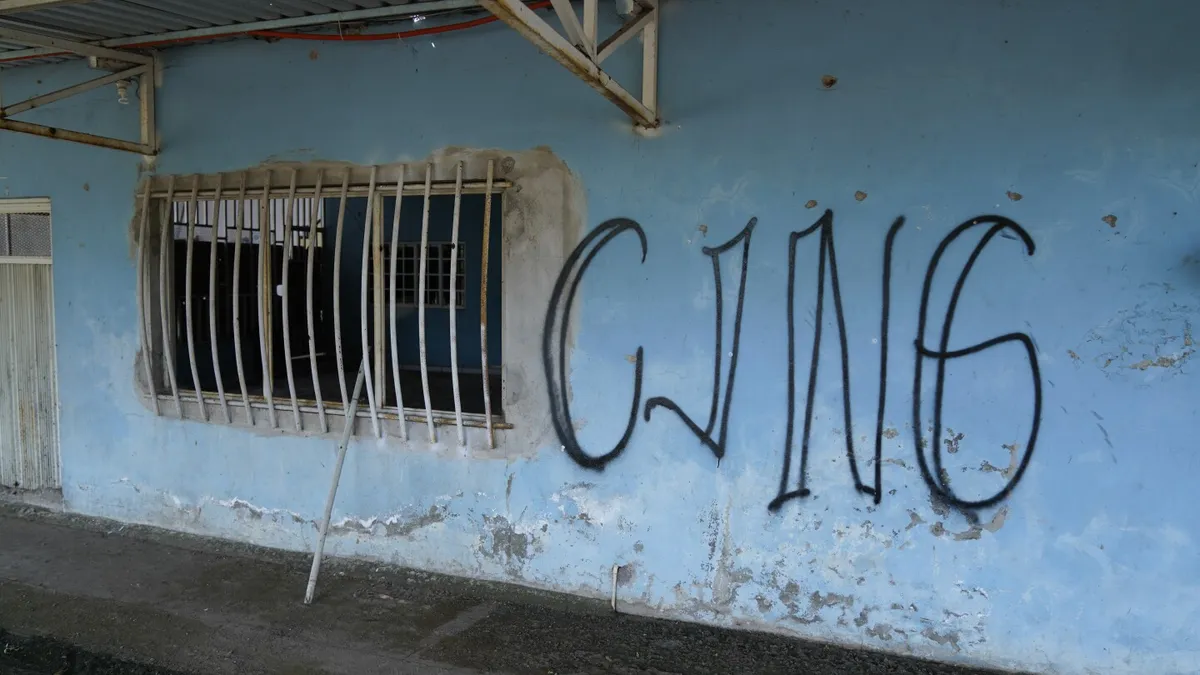
In a significant move to combat drug trafficking and organized crime, Mexico has sent 26 high-ranking cartel figures to the United States as part of a deal with the Trump administration. This transfer underscores the increasing pressure from American authorities aimed at dismantling criminal networks involved in smuggling drugs across the U.S.-Mexico border.
Among those transferred is Abigael González Valencia, a prominent leader of "Los Cuinis," a group closely affiliated with the infamous Jalisco New Generation Cartel (CJNG). According to a source familiar with the situation, who requested anonymity due to the ongoing nature of the operation, another individual, Roberto Salazar, is also in U.S. custody, wanted for his alleged involvement in the 2008 murder of a Los Angeles County sheriff’s deputy.
The cartel figures were flown to the United States after the Justice Department agreed not to pursue the death penalty against any of the defendants or cartel leaders transferred earlier this year. Mexican authorities confirmed the transfer of 26 defendants but did not disclose their identities. A news conference has been scheduled for Wednesday by Mexican security officials, which may provide further insights into this significant operation.
This transfer marks the second time in just a few months that Mexico has expelled cartel members accused of serious crimes such as narcotics smuggling and murder. In February, 29 cartel figures were handed over to U.S. authorities, including the notorious drug lord Rafael Caro Quintero, implicated in the killing of a U.S. DEA agent in 1985. These actions came just days before the implementation of a 25% tariff on Mexican imports, highlighting the ongoing negotiations between the two nations.
Recently, President Donald Trump engaged in discussions with Mexican President Claudia Sheinbaum, agreeing to postpone a threatened 30% tariff for an additional 90 days to facilitate further negotiations. Sheinbaum has demonstrated a willingness to enhance cooperation in security matters, especially regarding the fight against Mexico's powerful cartels. However, she has firmly rejected any proposals for U.S. military intervention, emphasizing Mexico's sovereignty.
The Trump administration has prioritized dismantling dangerous drug cartels, officially designating CJNG and seven other Latin American organized crime groups as foreign terrorist organizations. Following these designations, the administration has begun pursuing terror charges in various cartel-related cases, illustrating a more aggressive approach to combating drug trafficking.
Abigael González Valencia is notably the brother-in-law of CJNG leader Nemesio Rubén “El Mencho” Oseguera Cervantes, who remains a top target for U.S. authorities. Arrested in February 2015 in Puerto Vallarta, Jalisco, "El Mencho" has been fighting extradition to the United States ever since. The U.S. government has offered a reward of up to $15 million for information leading to his arrest or conviction.
Under the leadership of Abigael and his brothers, "Los Cuinis" has played a crucial role in financing the establishment and growth of the CJNG, one of the most powerful and violent drug cartels operating in Mexico. The CJNG is notorious for trafficking vast quantities of cocaine, methamphetamine, and fentanyl into the United States, while also being linked to extreme violence, including murders and torture.
One of Abigael's brothers, José González Valencia, was sentenced to 30 years in a U.S. federal prison in June after pleading guilty to international cocaine trafficking. His arrest in 2017 occurred while vacationing in Brazil under a false identity, marking a significant victory for U.S. law enforcement in their ongoing battle against drug trafficking organizations.
This latest transfer of cartel figures is a clear indication of Mexico's commitment to collaborating with the United States in the fight against drug trafficking and organized crime, as both nations continue to navigate the complex landscape of border security and public safety.